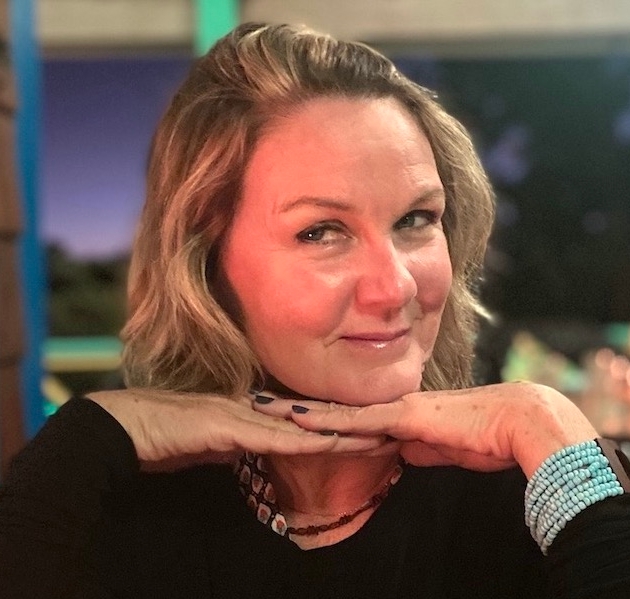If climate change is so urgent, why are we so stuck?
March 29, 2024

By Meg Kinney
This article is the first of a 4-part series that is adapted from an independent study by Executive Master of Natural Resources (XMNR) alumna Meg Kinney. The project titled “Finding New Climate Messengers: cultural context for the breakthrough narrative we need” can be accessed here. (A breakthrough narrative is a forward-looking mindset that invites collaboration and shared possibilities for addressing wicked problems; it is the opposite of a declinist mindset).
I can only speak for my own time here, but from my earliest memories, there’s been messages urging me to think about the environment and my role in it. Unless you, or people you knew, were studying or working in environmental science or policy, you learned about environmental issues like I did – through popular culture.
Yet today, despite a steady drumbeat of environmental awareness-making in popular culture since the 1970s and a deluge of sustainability marketing this century promising “a better world”, Americans struggle to collectively mobilize at scale.
Over the last five decades, popular culture and political rhetoric have had their hot take on headline grabbing issues from conservation to environmental justice to corporate accountability. Each decade seems to follow a pattern: science sounds the alarm while journalists, artists, and activists try to lift us out of passive despair and into action.
So here we are in 2024 America. Is anything different? I think so.
For starters, today’s sustainability problems are wicked: they are interdependent with other systems, too complex to break down into TikTok attention spans, and require cross-sector collaboration and compromise to address. Additionally, mainstream media profits from doom headlines and largely still reports on sustainability topics as if they were single-silo issues – a media industry content with their own vicious cycle of furthering public distrust of journalistic integrity in exchange for clicks.
However, a 2021 Pew Survey found that a majority of Americans a) believe global warming is happening, b) disagree with the idea that it is too late to do anything about it, and c) disagree with the idea that actions of individuals won’t make a difference.
Yet sadly, environmental protection as a priority has become a feature of political divisiveness.
All the while, scientists and economists have a noticeably more urgent clarion call. The takeaway here is that we think these problems are real, it’s not too late, and individuals might make a difference, but we’re not on the same page regarding how to focus our power. We’re stuck in place.
Clearly, Americans need a breakthrough message.
There are a handful of social theories and philosophical perspectives that offer explanations for why the breakthrough narrative about the environmental crisis hasn’t emerged. However, there is one simple idea I’d like to put forth: We’re misunderstanding optimism.
Optimism is often depicted in popular culture as a sort of happy-go-lucky way of finding the positive in any situation; or having a positive bias toward past events. It’s generally seen as a desirable personality trait. But in the current culture codes of the climate conversation, optimism too often gets portrayed as delusional and blind to reality – “can you not see that the world is burning?” As if optimism were unserious in some way.
David Deutsch, a physicist and author, talks about optimism as a framework for understanding progress and embracing human potential for improving the world. In his “Principles of Optimism” he depicts optimism as a stance toward the future and “a way of explaining failure, not prophesying success”. He advocates for a fallible worldview where our understanding can always be up for revision – accepting that we are dynamic beings, and two things can be right at the same time. Deutsch sees an infinity of possibility if we can approach problem-solving creatively and collaboratively. He encourages society to venture into uncharted territory to push the boundaries of their own human potential.
This plays right into the Future Self movement trending right now in the pop-psych canon of motivational content. This school of thought – intentional transformation -- suggests that preoccupation with the past is self-limiting behavior which creates a “default future”, one that is based on identity from past events. The movement is all about creating a mental/emotional future self that influences the present self. And isn’t this what being adaptive and resilient requires – preparation for a future?
Dwelling on past environmental sins and sinners creates powerlessness in the present. It’s too much emotional weight and the moral ledger of cancel culture is the killer of hope. When Americans are robbed of using their own imagination about what their future could be (optimism), they lack a sense of choice and agency (hope). This may explain the public’s lack of collective action around climate messages.
To cross cultural boundaries and unproductive political lines, perhaps the conversation starter should change. What is the future self of your community? What is the future self of your brand? Your own leadership? America? This feels like a more natural and interesting way to start a breakthrough narrative. This year, consider taking optimism up as your cause.


About the Author:
Meg Kinney is an ethnographer and cultural strategist as well as a 2023 graduate from Virginia Tech’s Executive Master of Natural Resources (XMNR) program focused on leadership for global sustainability. She works with brands, sustainability leaders, and social innovators helping them understand the context of progress and telling relevant stories to inspire change.


